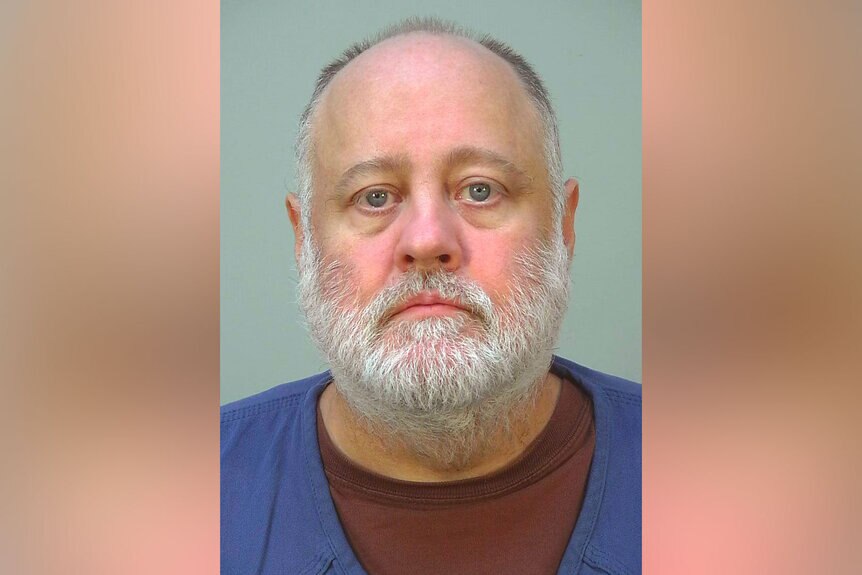Create a free profile to get unlimited access to exclusive videos, breaking news, sweepstakes, and more!
Registered Sex Offender Pleads Guilty To UW-Madison Student's 2008 Cold Case Murder
David Kahl has pleaded guilty to murdering college junior Brittany Zimmerman in her Madison, Wisconsin apartment in 2008. DNA connected him to the crime in 2020.

A registered sex offender has pleaded guilty to the 2008 cold case murder of a University of Wisconsin-Madison student who didn't give him money for crack cocaine.
David Kahl, 53, admitted on Thursday that he beat, strangled and stabbed Brittany Zimmerman, 21, to death in her apartment in 2008, according to the Associated Press. Although he pleaded guilty to first degree intentional homicide, which carries a mandatory life sentence, prosecutors agreed as part of a plea deal to not contest any petition for extended release once he serves 20 years.
That petition is due to be heard in January 2023, according to Law & Crime.
Zimmerman was killed around 12:20 p.m. on April 2, 2008 in the apartment she shared with her fiancé in downtown Madison, according to CNN and the Milwaukee Journal-Sentinel. A criminal complaint reviewed by the Wisconsin State Journal stated that she died of stab wounds and strangulation.
Zimmerman managed to call 911 during the attack, but the dispatcher claimed to have heard nothing on the call, did not call back once it was disconnected and did not call back, CNN reported. A written statement about the tape of the call reveals that "screams, gasps and what sounds like a struggle" were audible.
Police were only dispatched 48 minutes later when Zimmerman's fiancé, Jordan Gonnering, arrived home and found Zimmerman's body. (Her family ultimately sued the county over its handling of the call and settled out of court in 2010, the Journal reported.)
A police investigation at the time said that there were signs of forced entry into her apartment, her body was found in her bedroom and her cell phone had been smashed, according to CNN. Police said the knife used in the murder was two-to-five inches long.
The 911 dispatcher told police that she had called Zimmerman back and reached two men, who said they'd dialed 911 by mistake — a statement which turned out to be false but led investigators astray for nearly two weeks before they determined that the dispatcher had returned an entirely different call and never reached two men on Zimmerman's broken cell phone, the Journal reported.
Once the investigation got back on track, investigators found four people in the area around Zimmerman's apartment who recalled being approached by a man asking for money, local station WISC-TV and local NBC affiliate WMTV reported. Kahl was eventually identified as the man in question because he gave one person his Wisconsin Department of Corrections Offender ID card in exchange for $20, and knocked and entered another woman's home without permission to ask for money.
Questioned by police, Kahl admitted to panhandling in the area to get money for drugs. He allegedly admitted to being high, adding that he was a paranoid schizophrenic who had stopped taking his medication, according to the criminal complaint reviewed by WMTV, but denied entering any homes or having any part in the murder.
He was also a registered sex offender, having been convicted of second degree sexual assault in 1993, according to the state sex offender registry records reviewed by Oxygen.com. Additionally, he had prior convictions for drug distribution, theft, driving while under the influence and possession of marijuana dating back at last to 1992, according to court records reviewed by Oxygen.com.
At the time of the murder, Kahl was on supervised release following convictions for failure to update his status in the sex offender registry as well as driving while under the influence, according to jail records reviewed by Oxygen.com. He was returned to prison on May 30, 2008.
Police say that, while Kahl was incarcerated on those charges in 2009, he sent a letter to police claiming that another inmate had committed the murder, according to the Journal. In 2014, DNA from Kahl's entry in CODIS was determined to be a match for DNA discovered on Zimmerman's shirt, WISC-TV reported, but police said at the time that the match wasn't enough probable cause to arrest Kahl, who had been released in 2010, convicted of a sixth operating while under the influence charge in 2011 and released on extended supervision in 2013.
According to WMTV, another DNA match from Zimmerman's shirt in 2017 also led to Kahl — who, by then, had been incarcerated again after a seventh conviction in 2016 for operating under the influence, according to jail and court records reviewed by Oxygen.com.
He was formally charged with Zimmerman's murder in March 2020, according to the Journal. Though he wasn't eligible for release until 2021, a judge in 2020 set his bond at $1 million. He was transferred to Dane County in November 2021.
At his plea hearing on Thursday, Kahl's lawyers told the court that after "a lot of soul-searching from David, he let go of a secret that he had been keeping for 14 and a half years," according to the Journal.
Kahl said that, in addition to the panhandling police knew about, he had been going door-to-door in Zimmerman's neighborhood on April 2, 2008, trying to scam people out of money by claiming he needed to fix a flat tire. In reality, his lawyers said, he was high and looking to get money to purchase more crack.
He got into Zimmerman's building and then into her apartment.
“And she was kind," Kahl's lawyer, Ben Gonring told the court. "The evidence has always been clear that she was a kind-hearted person and was that day.”
She refused to give Kahl money but apparently let him use the bathroom.
However, when he emerged, she was on the phone. Gonring didn't state whether this was the 911 call that dispatchers ignored.
“He basically lost it, for lack of a better phrase,” Gonring said, according to the Journal. “He was in the throes of a lot of drug usage and was paranoid and had not been out of prison for all that long, was very worried about what was happening on the other end of that line, and then proceeded to do acts which absolutely fit the criteria for first-degree intentional homicide.”
During his plea, his lawyers asked that he be remanding into state custody quickly, as there is better mental health care access.

























